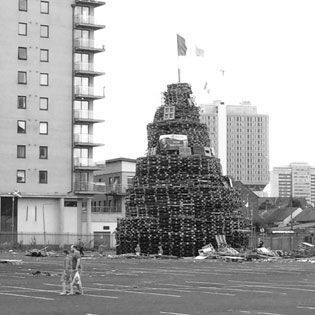Living with Urban Heritage Decoding Architectures and Spatial Systems of Urban Division in The Contemporary City
- Dates
- Tuesday 20 February 2018 (17:00-18:00)

Ironbridge International Institute for Cultural Heritage Visiting Lecture Series
Professor Mohamed Gamal Abdelmonem
Chair in Architecture and Director, Centre of Architecture, Urbanism and Global Heritage, Nottingham Trent University
Synopsis
Heritage sites offer unique narration of the physical and spatial interpretations of human activities, skills, thoughts and resources over extended period of time, creating identifiable and meaningful realms related to space/place, time and society. They act as tangible intergenerational link with the past, reflecting the endurance of human imprints, spatial practices and memory in everyday life. While Contemporary cities have several aspects of spatial divisions whether socio-economic, or ethno-cultural, their architectural and urban heritage continue to negotiate and shape its identify on daily basis through the tangible evidence of built environments, be it permanent buildings, spaces or temporary structures. Through conscious decisions on what to preserve and what to dispose of, urban memory continue to inform our everyday behaviour towards each other. The hierarchical structure of city spaces develops invisible barriers and define unequal privileges of accessibility and service, creating attached yet isolated universes. To understand the ethos of urban living and reveal its contested nature, one needs to decipher the underlying contest in the city’s culture and spatial memory of everyday life. In this lecture, Professor Abdelmonem offers a series of diagnostic analysis of the chronic social and cultural polarisation in urban environments that possesses spatial structures of segregation and division. He presents research endeavour in distinctive urban contexts across several cities, including Cairo, Baghdad and Tripoli to Belfast and Berlin. It highlights how city’s spaces and architecture emphasise boundaries and territories that are only underpinned by the spatial memory in everyday life, yet obscure to foreign and unfamiliar visitors.
Biography
Professor Mohamed Gamal Abdelmonem is Chair in Architecture and the Director of the Centre for Architecture, Urbanism and Global Heritage (CAUGH) at the School of Architecture, Design and Built Environment at Nottingham Trent University. He is the co-lead of University’s Research Theme: “Global Heritage: Science, Management and Development”. Professor Abdelmonem was a Visiting Professor at prestigious Universities, including Royal Academy of Arts in London and the University of California at Berkeley. He led design studios and Architectural history courses at Queen’s University Belfast and the University of Sheffield. He has practiced architecture for over 20 years across Africa, Asia and Europe. He is the recipient of the Jeffrey Cook Award for 2014, the Biennale Award of the International Association for the Study of Traditional Environments (IASTE) for his research on traditional urban environments.
Professor Abdelmonem research and publications focus on the modern interpretation of heritage, socio-spatial practice in historic environments, the architecture of home, spatial memory, politics of urban space in everyday life, Digital Modelling of urban Heritage. His recent books include ‘Peripheries: Edge Conditions in Architecture’ (Routledge 2012), “The Architecture of Home in Cairo: Social-spatial practice of the Hawari’s everyday life” (Routledge, 2015), ‘Portrush: Architecture for the North Irish Coast’ (Ulster Tatler, 2013) and the forthcoming title “Architecture, Space and Memory of Resurrection in Northern Ireland” (Routledge 2018). He advises several governments and led several International Consortium on research projects funded by The European Research Council (FP7), The Government of Ireland, Japan Foundation, Arts and Humanities Research Council (AHRC), and the Heritage Lottery Fund.